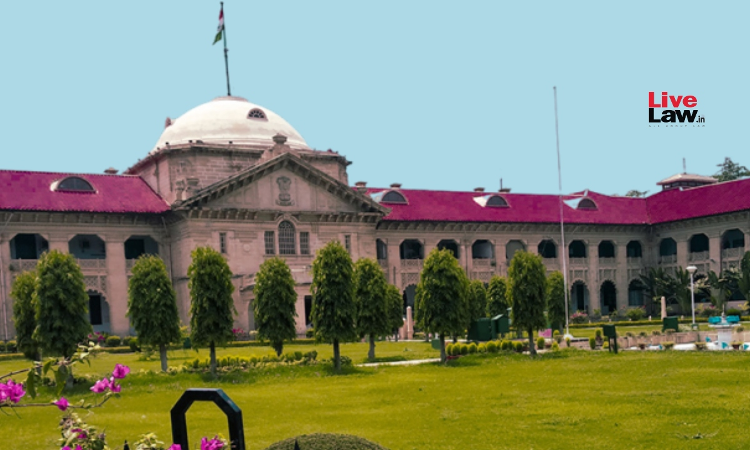Interim Restraint On Creating Third-Party Rights In Property Is Permissible In Specific Performance Suits: Allahabad High Court
Upasna Agrawal
30 Oct 2025 6:00 PM IST

The Allahabad High Court has held that an injunction can be granted against the owner of a property in specific circumstances under Order 39 Rule 1 & 2 of CPC, even if the principle of lis pendens under Section 52 of the Transfer of Property Act ('TP Act') is applicable.
Referring to the decision of the Apex Court in Ramakant Ambalal Choksi vs. Harish Ambalal Choksi & Others, Justice Sandeep Jain held
“The relief of interim injunction can be granted in favour of the plaintiffs against the defendant for preventing the defendant from alienating or transferring the disputed property, even if the principle of lispendens enumerated in Section 52 of the Transfer of Property Act is applicable, as held by the Apex Court in the case of Ramakant Ambalal Choksi(supra)”
Defendant was the owner of land in Mirzapur, which was agreed to be sold to the plaintiffs for a consideration of Rs. 2.05 crores. A registered agreement to sell was executed in presence of witnesses.
As per the said agreement, defendant had already received Rs. 1.85 crores prior to execution, with the balance amount of Rs. 20 lakhs to be paid within three months of execution of sale deed. The defendant defaulted in executing a sale deed in favour of the plaintiffs despite their readiness and willingness to fulfil. A subsequent legal notice by the plaintiff to the defendant to appear before the concerned Sub-Registrar had no effect.
Being aggrieved, the plaintiffs filed a suit for specific performance. During pendency, plaintiffs filed an interim injunction application under Order 39 Rules 1 and 2, seeking prevention of third-party rights on disputed land through sale. The plaintiff pleaded that the defendant's intention had turned mala fide, and selling to third parties would complicate the issue.
The defendant contended that he was the owner of the land, in possession, and recorded as tenure holder in revenue records. The alleged agreement to sell was executed as security for the loan taken by the defendant from the plaintiffs. It was further contended that the defendant had arranged the money to be returned after two months, but the plaintiffs refused, and that the market value of the land was at least Rs. 8 crores.
The Trial Court rejected the plaintiff's application on the ground that they were neither in possession nor registered as tenure holder. As the land belonged to several co-owners, the specific parcel was unidentifiable. Due to this, balance of convenience didn't accrue in their favor, and no prima facie case was made out. The Trial Court opined that even if third party rights are created, they would be barred by the principle of lis pendens under Section 52 of the TP Act.
Aggrieved by the rejection, the plaintiff approached the High Court.
The Court observed that as per the registered agreement to sell, the plaintiffs would be given possession once sale deed was executed. While it was well settled that an agreement to sell doesn't create a right, title or interest in favour of the vendee, the plaintiffs only sought to restrain sale to a third party, not protection of their possession.
The Court referred to Ramakant Ambalal Choksi vs. Harish Ambalal Choksi and others, where the Supreme Court held that Section 52 of the TP Act may not be enough to take fullest care of the interest of the plaintiffs vis-à-vis such transfer.
An illustration was given by the Supreme Court where a third party may without notice of dispute purchase land and invest a significant sum for improvement. In such a case, equity in the third party's favor may persuade a court to decline the relief of specific performance. The Supreme Court went on to state that the legislature would not have enacted Order 39 Rules 1 and 2 if the TP Act was regarded to be a panacea against pendente lite transfers.
The Court observed that for obtaining specific relief, plaintiff has to be ready and willing to perform its part.
It held that the trial court erred in its reasoning, as the plaintiffs not being in possession or tenure holder was an admitted position. The plaintiffs were not seeking to protect possession, but only prevention of creation of third-party rights which would have complicated the issue, held the Court.
Further, the Court held that in the given circumstances, and in view of Ramakant, injunction against third-party rights can be granted notwithstanding Section 52 of the TP Act.
Accordingly, the appeal was allowed with injunctive relief granted to the appellant. The trial court was directed to decide the suit preferably within a period of six months from receipt of order, without granting unnecessary adjournments to either side.
Case Title: Mahesh Kumar And 3 Others Versus Omaira Buildcon Proprietor Lalit Gogia [FIRST APPEAL FROM ORDER No. - 2422 of 2025]
Counsel for Appellant(s) : Aishwarya Pratap Shahi, Nipun Singh
Counsel for Respondent(s) : Krishna Mohan Garg


